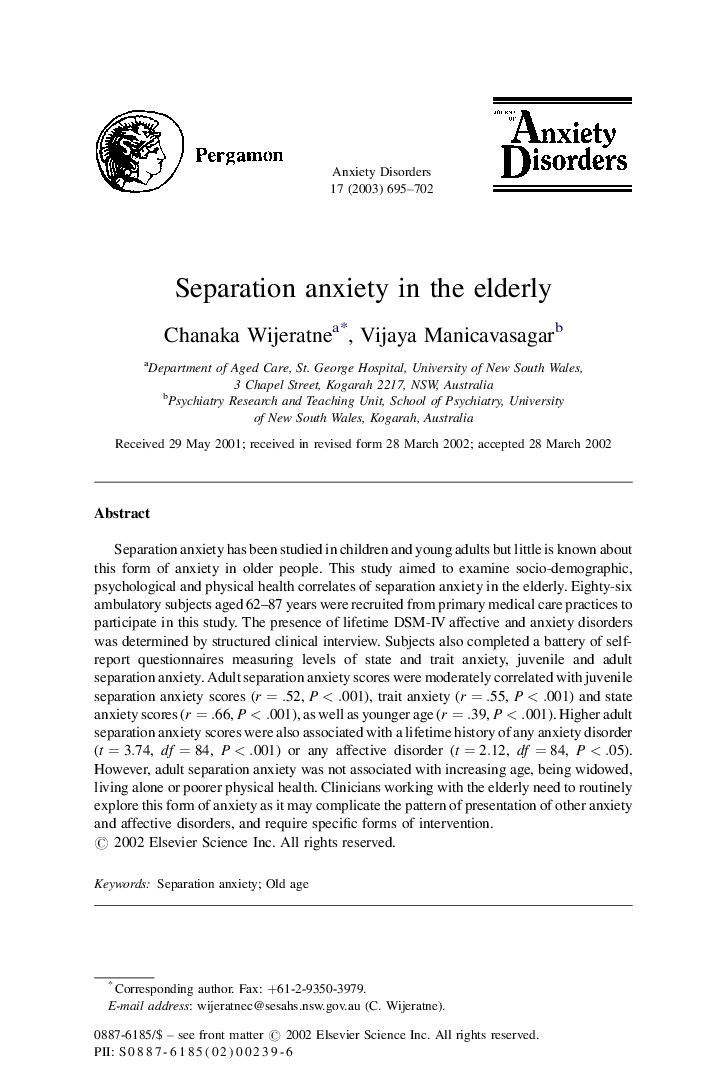| Article ID | Journal | Published Year | Pages | File Type |
|---|---|---|---|---|
| 10447977 | Journal of Anxiety Disorders | 2003 | 8 Pages |
Abstract
Separation anxiety has been studied in children and young adults but little is known about this form of anxiety in older people. This study aimed to examine socio-demographic, psychological and physical health correlates of separation anxiety in the elderly. Eighty-six ambulatory subjects aged 62–87 years were recruited from primary medical care practices to participate in this study. The presence of lifetime DSM-IV affective and anxiety disorders was determined by structured clinical interview. Subjects also completed a battery of self-report questionnaires measuring levels of state and trait anxiety, juvenile and adult separation anxiety. Adult separation anxiety scores were moderately correlated with juvenile separation anxiety scores (r=.52, P<.001), trait anxiety (r=.55, P<.001) and state anxiety scores (r=.66, P<.001), as well as younger age (r=.39, P<.001). Higher adult separation anxiety scores were also associated with a lifetime history of any anxiety disorder (t=3.74, df=84, P<.001) or any affective disorder (t=2.12, df=84, P<.05). However, adult separation anxiety was not associated with increasing age, being widowed, living alone or poorer physical health. Clinicians working with the elderly need to routinely explore this form of anxiety as it may complicate the pattern of presentation of other anxiety and affective disorders, and require specific forms of intervention.
Keywords
Related Topics
Health Sciences
Medicine and Dentistry
Psychiatry and Mental Health
Authors
Chanaka Wijeratne, Vijaya Manicavasagar,
